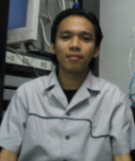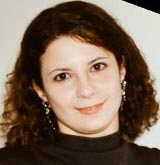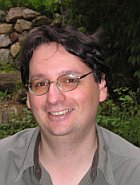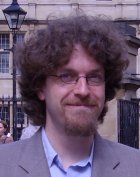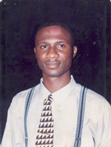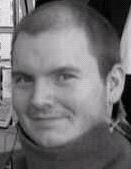![]() (This page is yet only visible to administrators)
(This page is yet only visible to administrators)
Software Freedom International (SFI)
SFI is a non-profit company based in the USA whose primary function is to coordinate Software Freedom Day all around the world. All contributors to the success of SFD volunteer their time. Find more about Software Freedom on our about page.
Contents
Our Vision & Objectives
Vision
Our vision is to empower all people to freely connect, create and share in a digital world that is participatory, transparent, and sustainable.
Objectives
- to celebrate software freedom and the people behind it
- to foster a general understanding of software freedom, and encourage adoption of free software and open standards
- to create more equal access to opportunities through the use of participatory technologies
- to promote constructive dialogue on responsibilities and rights in the information society
- to be inclusive of organizations and individuals that share our Vision
- to be pragmatic, transparent, and responsible as an organisation
Who is SFI?
The SFI is run by a Board of Directors. The Board of Directors meets every other week for half the year and every week in the lead up to Software Freedom Day with an IRC conference to discuss various topics pertaining to the regular activities of Software Freedom International and Software Freedom Day. The minutes to these meetings are posted publicly on the website.
The Board has 6 elected members, and every year 3 team representatives are invited to also sit on the board in order to keep it fresh, responsive to teams and to encourage team participation in the running of Software Freedom Day internationally.
The Board can be contacted on <info at sf-day dot org>
Bylaws (PDF)
Core Board
The Board of Software Freedom International |
|
|
Frederic Muller, SFI President |
|
Matt Oquist, SFI Secretary/Treasurer |
|
JM C. Bitanga |
|
Pockey Lam |
|
Alexjan Carraturo |
Jan Husar |
|
Quiliro Ordóñez |
|
|
Silvia Aimasso |
|
Thilo Pfennig |
Previous board members
The board changes from year to year, as we invite members of the SFD community to join us for a year or longer. Previous community representatives include
Previous members of the board |
|
|
Robert Schumann [ |
|
Pia Waugh |
|
Joe O.A Olutuase |
Phil Harper |
|
Peter Ruwoldt |
|
Judy Wilson |
|
|
Henrik Omma |
Advisory Board
SFI also has an Advisory Board made up of sponsors and supporters.
Board meetings
The board has regular (every one or two weeks) IRC meetings to plan SFD. If you would like an issue raised at a board meeting, please contact the board.
How did SFI (and SFD) begin?
Sometime in January of 2004, Matt Oquist concluded that
- Free Software had improved to the point of being suitable for public use, and
- public ignorance was one of the primary roadblocks to public acceptance.
He remembers driving past a retail store that he knew had piles of AOL CDs lying around, and he thought to himself that a CD filled with software such as OpenOffice.org, Firefox], and [[http://gimp.org would be of vastly greater value to the public. He planned to burn such CDs and try to get permission to distribute them at the retail store in question.
After contacting his local LUG regarding this idea he was referred to project, which maintained a CD of high-quality Free Software for Windows that matched Matt's (so far vague) vision. Matt proposed the idea of an international day of handing out Free Software CDs in TheOpenCD forums, and project leader Henrik Omma and project contributor Phil Harper both shared this vision and began collaborating immediately.
After considering several proposals of dates, names, and logistics, Henrik, Phil, and Matt agreed on "Software Freedom Day" because they believed that ultimately, everyone without a vested interest in proprietary software can unite to educate the worldwide public about the ideals of Software Freedom and the practical benefits of Free Software. August 28th, 2004, was the first annual Software Freedom Day.
Henrik, Phil, and Matt recruited Fred Noronha and Jules Sidenburg to have the required total of five board members to found a non-profit corporation in the state of New Hampshire, USA.
Since that time the board has been pleased to welcome Sidsel Jensen, Joe O.A Olutuase, Benjamin Mako Hill, Robert Schumann, and Pia Waugh, who bring a wealth of energy and experience to the organization.
Components of "Software Freedom Day"
Software
SFD is primarily about Software, but Software Freedom can affect almost every aspect of our lives. Software Freedom enables governmental transparency and openness; for example, voting machines and government records can be examined and available to a degree that is impossible when proprietary secrecy stands in the way of public scrutiny. Software Freedom empowers non-profit organizations (such as libraries, schools, and religious organizations) and businesses (especially in developing countries) to compute with state-of-the-art software without the undue restrictions and costs imposed by proprietary software licensing. Software Freedom can provide a higher degree of security than is possible with proprietary software, because the artificial barrier of proprietary secrecy is not in place to keep security experts from contributing ideas, and it's in those experts' best interest to make sure the software is secure.
Software Freedom has massive legal and economic benefits, and it ultimately empowers people on a local level to exercise enlightened self-interest concerning any area of life that involves software.
Freedom
The English word "free" is ambiguous. Here's how Richard Stallman disambiguates the term:
"Free software" is a matter of liberty, not price. To understand the concept, you should think of "free" as in "free speech," not as in "free beer."
This now-famous distinction addresses the two most fundamental categories of benefits of Software Freedom: ideological and practical.
Ideology
Ideological proponents of Software Freedom are most centrally concerned with freedoms such as in speech, association, privacy, and education. The word "proprietary" refers to ownership and private control, and while ownership and private control are very beneficial to society in many areas, they are directly opposed to the public good when they are applied to software, which consists of expressions of ideas (and these expressions happen to be understandable by computers).
Practicality
Pragmatic proponents of Software Freedom are most centrally concerned with economic, governmental (see above), and educational benefits. Free Software is not produced without cost, and there is no guarantee that it will be available to you without cost. But in practice, almost all Free Software is free from licensing fees, and the licensed publication of Free Software source code guarantees that no private interests have the power to revoke this public economic benefit.
Software Freedom benefits society educationally in two primary senses:
- schools have access to a greater amount of high-quality software because licensing fees are not a limiting factor, and
- students of computer science are free to begin working directly with state-of-the-art software.
It is only fitting that the ideals and practical benefits of this academically-inspired movement are now turning full-circle and benefiting schools of all levels, around the world. Visionaries who wanted to improve their own educations have laid down a legacy that will improve the educations of billions of others.
The Day
Software Freedom Day is centered on a particular day each year in order to heighten the sense of unity that SFD teams around the world experience - we're all in this together, working simultaneously in scores of countries toward a common goal. Many proponents of Software Freedom have been holding publicly educational events for years; it is our hope that by concentrating such efforts on a single day each year we can achieve a worldwide awareness that remains elusive when our efforts are chronologically dispersed.


